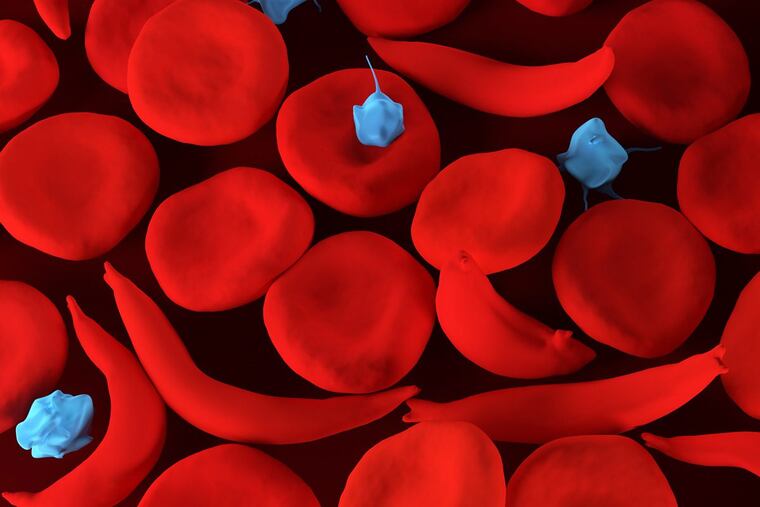Q&A: A family member was recently diagnosed with sickle-cell disease. What should I know?
To have the disease, both sets of parents must carry the sickle cell trait, which causes red blood cells to be abnormally shaped and get stuck inside the blood vessels, making it hard to deliver oxygen throughout the body.

Q: A family member was recently diagnosed with sickle-cell disease. What should I know about the disease?
A: Sickle-cell disease is the most common genetic disorder in the United States, affecting about 1,000 newborns every year. It is often thought of as a disease of African Americans, but it's also found in other races.
To have the disease, both parents must carry the sickle-cell trait, which causes red blood cells to be abnormally shaped and get stuck inside the blood vessels, making it hard to deliver oxygen throughout the body.
Patients are at risk for stroke, eye disease, gallstones, bacterial infections, and anemia, among other health issues.
Identifying sickle-cell disease in infancy can prevent serious complications. In the U.S., every baby is tested for sickle cell disease as part of the newborn screening.
It is essential that children and adults who are diagnosed with sickle-cell disease have a comprehensive care team that includes primary-care physicians, hematologists, pediatricians, nurses, and social workers.
>> READ MORE: Sickle-cell patients suffer discrimination, poor care – and shorter lives
Twenty years ago, children with sickle-cell disease rarely lived to adulthood. Today, the outlook for patients has improved significantly with blood transfusions and medication. Some patients can even be cured with a bone marrow (also called stem-cell) transplant. The best success has come from donors who are siblings, and whose genetic makeup matches the patient's.
The best ways to manage sickle cell disease include:
Regular checkups and screenings and following prescribed treatment plans.
Infection prevention with up-to-date vaccinations and frequent hand-washing.
Healthy habits such as drinking eight to 10 glasses of water a day and eating healthy foods.
Joseph Tropea, DO, is a hematologist/medical oncologist at Our Lady of Lourdes Medical Center in Camden, and Lourdes Medical Center of Burlington County in Willingboro.